Wild landscapes, diverse beaches, thermal springs, lively summer festivals in beautiful village squares, rugged mountains, and tavernas serving foods made from organic produce and local goods like goat’s cheese, honey, and meat are all part of the Ikaria experience.
The island is known both as the ‘land of the exiles’ because this is where communists were sent to live during Greece’s Junta years and as ‘The Island Where People Forget to Die’ because of its Blue Zones reputation, is not glamorous but has managed to capture the hearts of even the most demanding travelers because of its unique appeal.
Discover the 10 Best Things to do in Ikaria
1. Dance at the Panigiri
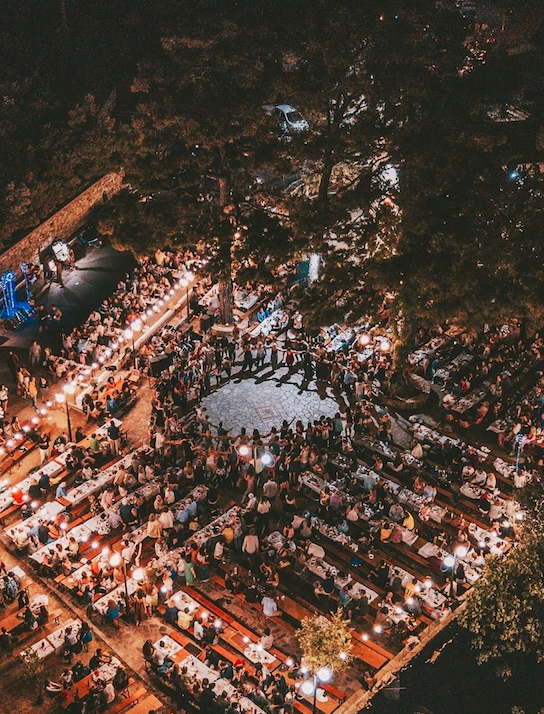
With over 100 local community dance, live music, and food festivals running between May and October, the island hosts guests from around the world at these familial and sometimes riotous events. Attending should be done with respect to the locals and their traditions, and is a way of discovering religious, cultural, and sometimes near-Pagan customs that span the ages. It’s also a fantastic opportunity to see villages and their surroundings that one wouldn’t normally visit, as well as meeting and partying with their usually warm and welcoming inhabitants. Try the local fare – usually goat meat, tomato salad, fries, local wine, and other dishes cooked by community volunteers and housewives and try to stay up ‘til dawn.
2. Visit the Thermal Springs
There are eight hot springs on the island, which have been enjoyed for their therapeutic powers (helping to ease respiratory, rheumatic, gynecological, intestinal, and even anxiety-based problems) since antiquity. They are reputed as some of the most radium-rich waters globally and some suspect they contribute to Ikaria’s impressive health record. You’ll find them at Aghios Kirikos, Aghia Kyriaki, Lefkada, and Therma. Instead at Xylosyrtis village, you’ll find a cold water spring that’s also lauded for its health-boosting effects (especially for kidney problems) and is called ‘immortal water’.
3. Go to Seychelles
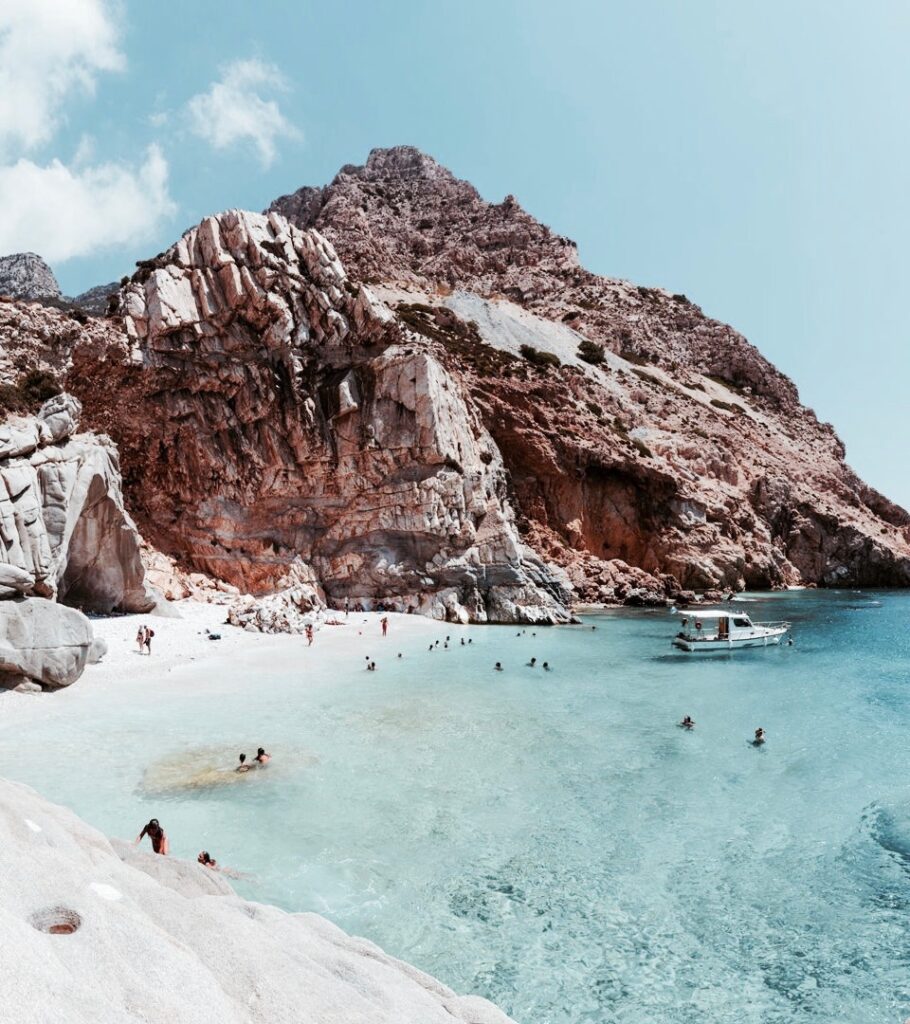
A beach that happened by accident as the result of a building project, Seychelles (south of Aghios Kyrikas) is the island’s most famous beach because of its white limestone rocks and turquoise waters. It’ll be busy during high season so try going early in the morning if you want space! But there are many other lovely beaches to swim at around the island. Armenistis is a wide, sandy, family-friendly beach not far from several great places to eat, Nas beach is wild and where you’ll find the ruins of the Artemis Temple and a river, Prioni is a beautiful, small free beach with ebullient waters, Messakti and Evdilos beaches are organized beaches with more people and nearby cafes/tavernas.
4. Eat like a local
A household food garden is a common thing in Ikaria, where fresh, seasonal produce is treated as a priority. With an overpopulation of goats (that actually endangers the land from being chomped up almost entirely), goat’s meat, milk, yogurt, and especially ‘kathoura’ cheese are readily available. Other popular locally-farmed products include giant courgettes, which are served with olive oil and lemon or combined with other vegetables to make briam, a sort of ratatouille. In some parts of the island, namely the port of Aghios Kyrikos and Fournoi, you’ll find restaurants serving locally-fished lobster, popularly prepared as a saucy pasta dish known as ‘astakomakaronada’. Wherever you’re staying you’re bound to find good tavernas or restaurants serving traditional dishes as well as souvlaki joints, bakeries selling cheese pies and other Greek pastries, but some of the most loved places to eat include Thea’s Restaurant, CousinA, Sto Kambi, Platanos Taverna, Rachati Stou Pouriezi, Anna’s Fish Taverna, Arodou and Krioti.
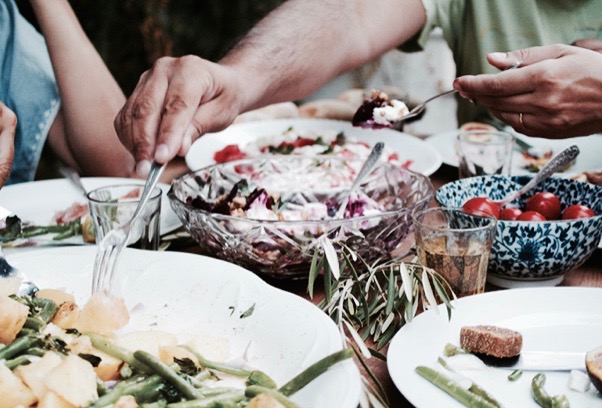
5. Stock up on Ikarian Honey & Preserves
Good, pure honey is liquid gold for the body and soul and Ikaria makes abundant quantities. Thyme, white heather, arbutus (strawberry), pine, and reiki honey are produced by several experienced locals who have dedicated their lives to beekeeping. You’ll find local honey sold at most mini markets and local food shops αs well as online. A place that visitors shouldn’t miss for local honey, preserves, and more is the self-funded Women’s Cooperative of Raches. The hard-working, talented, and creative members concoct wonderfully delicious spoon sweets, jams, and liqueurs and offer service at tables outside their space, where you can try mouthwatering fresh pies, cakes, and ice cream with your coffee.
Go for a Hike
Ikaria changes quite dramatically from one location to another – some parts are rugged, barren, and mountainous and others lush, with flowing streams, gorges, waterfalls, rivers, or pretty coasts. The island is great for walking, hiking, and climbing and there are well-organised marked routes that one can follow by getting hold of a hiking map. Explore the Natura 2000 zones (like the Ikaria On Foot Circuit, which is 25km long). Find out more on Ikaria travel website, Hiking Ikaria and Discover Ikaria.
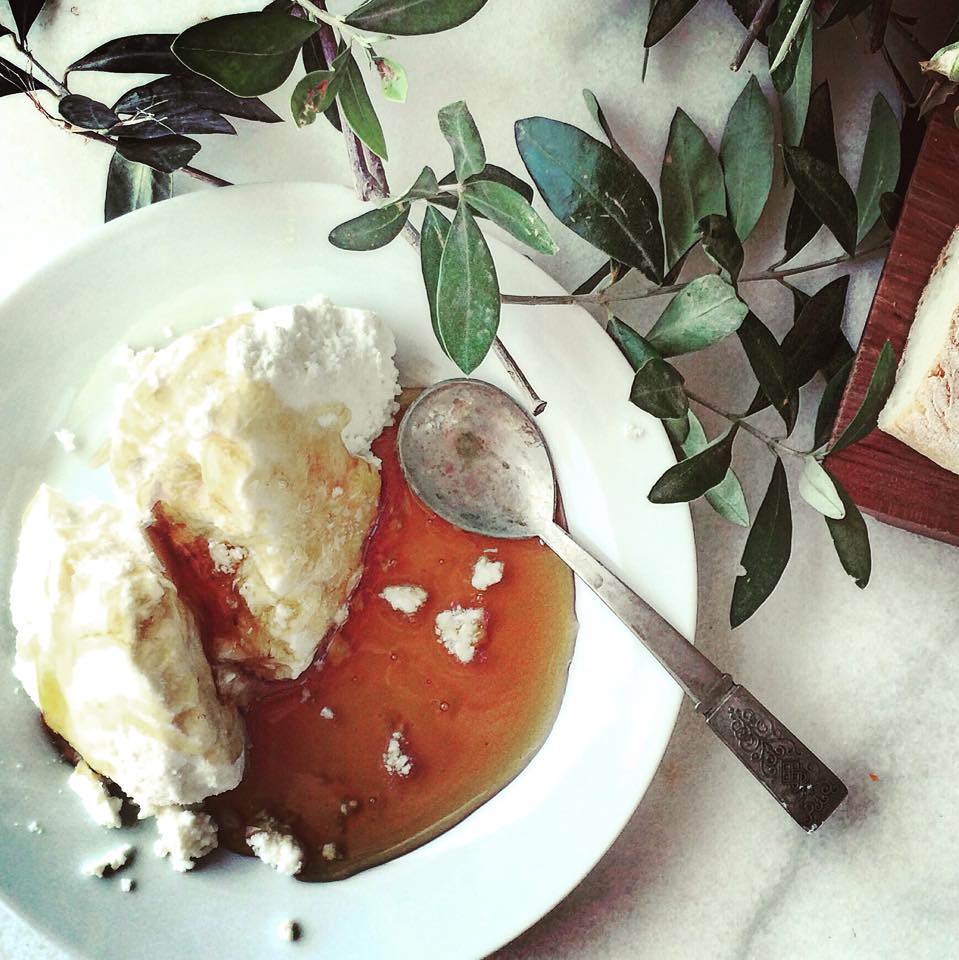
Hang Out in the Square
Scientists have researched numerous factors that may contribute to the Ikarian people’s longevity status – from diet and radium-rich soil to exercise (field-work and farming). The aspect that is thought to have the greatest impact on living a long life, not only in Ikaria but everywhere, is thought to be community – not being lonely, as people increasingly are in today’s virtual – not to mention locked down – age. In Ikaria, throughout the year, people of all ages commune together to eat, discuss, play backgammon, cook, play music and work. There is a close-knit support system among neighbours. This can be experienced by visiting any village square in the post-sunset hours when people head out to see each other and connect. Grab a backgammon set and a cold beer and join in on the fun!
Shop Ikarian Souvenirs
From ‘Ikarian Evolution’ hoodies and humorous mugs relating the playful island spirit to lovely handmade jewellery and traditional décor items, there are plenty of great shopping choices at Pantelis & Ursula Kastanias’ store in Raches. Another great option for shopping for local souvenirs is Ploumi at Aghios Kyrikos port, where they sell handmade bags, wallets, mugs and other objects made with attractive materials and designs. Over the last few years, Ikaria has seen a rise in locally-created natural cosmetics, And you’ll find some of the best at Melia in Raches, including soaps, creams, lotions, and oils for the face and body as well as organic food products.
Take a Wine Tour
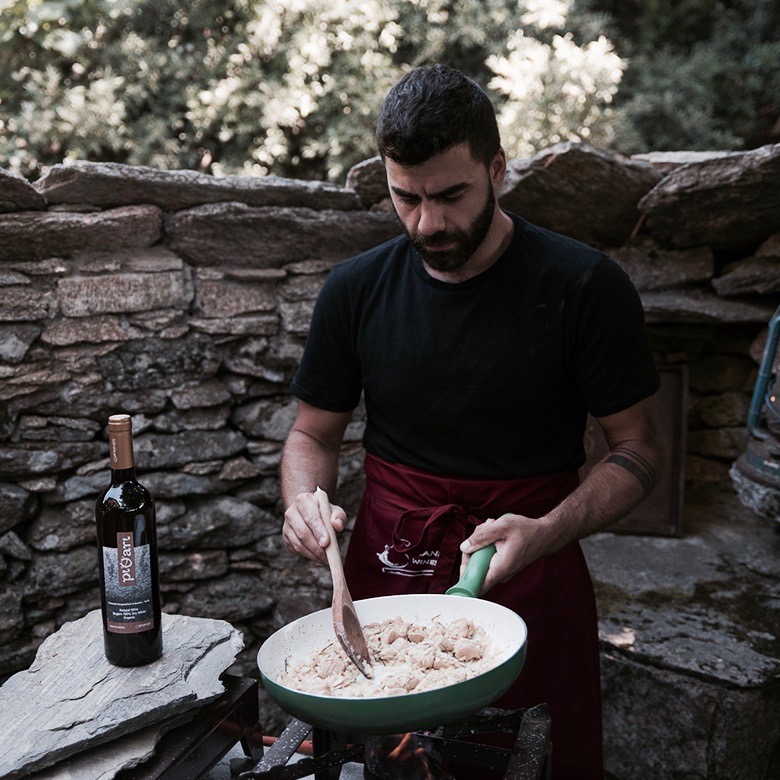
Another wonderful way to experience the island’s variability and beauty are by visiting its wineries and sampling wines made from local and other Greek grapes as well as food. Tsantiris Winery in northwestern Ikaria produces 100% organic wines, Afianes winery regularly hosts dinners, events such as weddings and concerts, and tastings, while Karimalis winery hosts dinners as well as a farm stay, exploration of the winemaking facilities and tastings. Make sure you call in advance to book an appointment.
Learn From Locals
Over the years, as Ikaria has become so famous in corners of the world where it was formerly completely unknown, visitors have flocked here to learn the secrets of wellbeing. To locals, the secret was naturally just being, but today they have understood that there are interesting ways to combine a visitor’s experience with education of their beautiful land’s nature and tradition. So why not combine a holiday there with a cooking class, herb gathering, and tasting, alternative healing practices? Find out more from The Egg for yoga and mindfulness, The Ikarian Centre for ceramics and crafts, Hiking Ikaria and Ikarian Footprints for herb gathering, Ikaria Dance for traditional dancing, Diane Kochilas for cooking, and Joey Brown for writing.

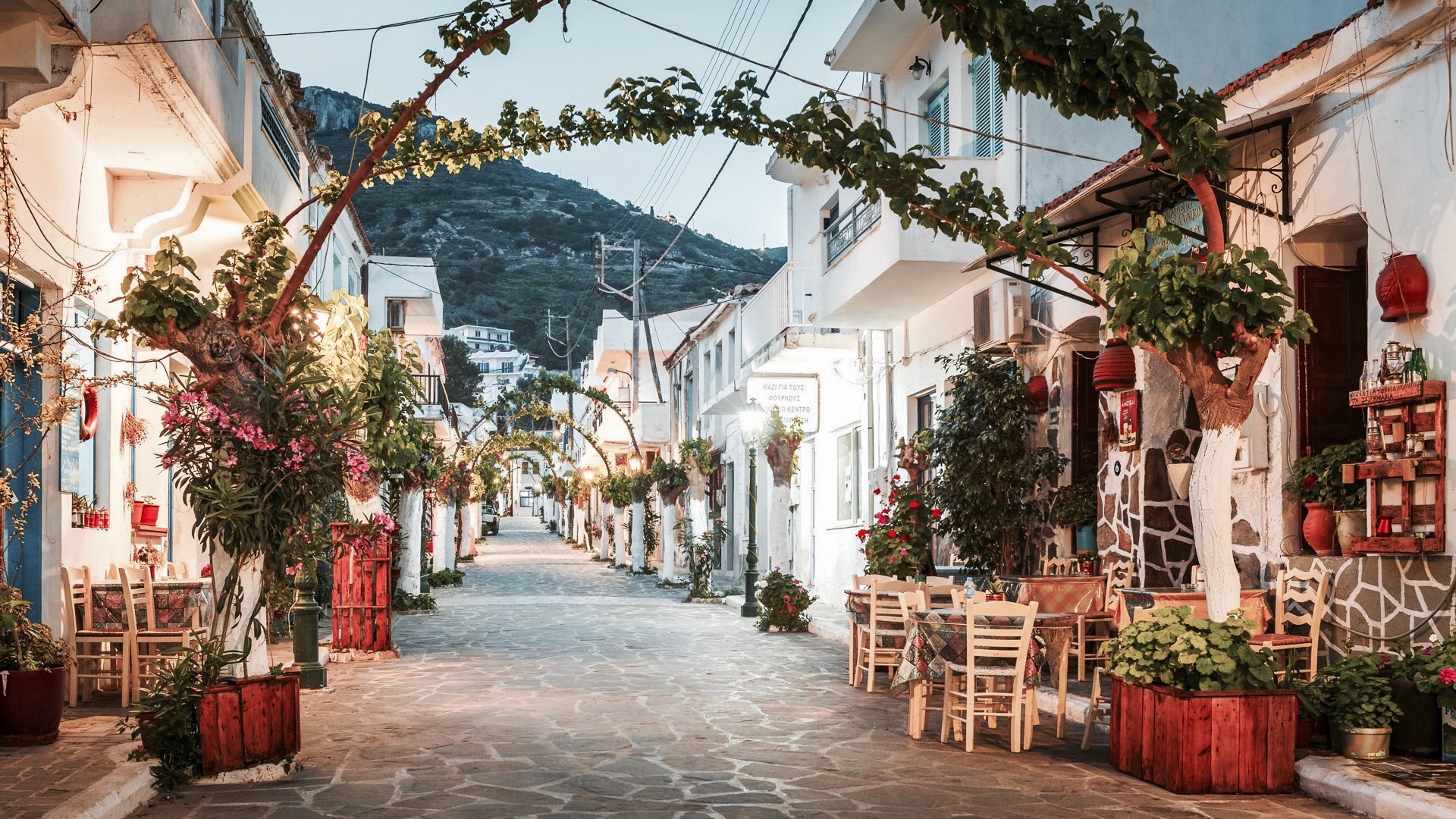
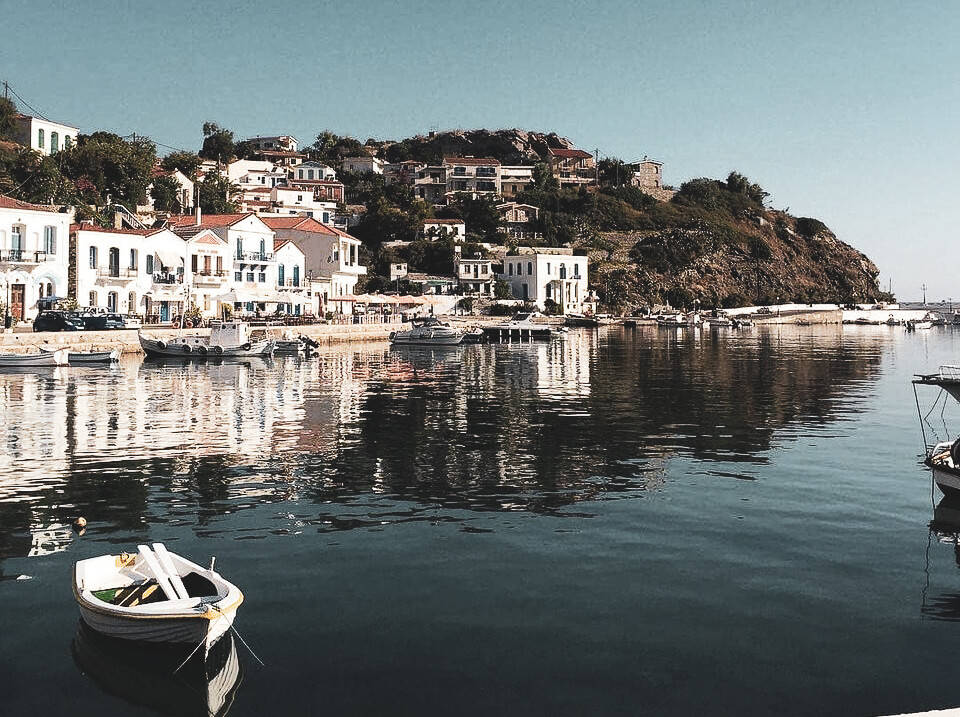
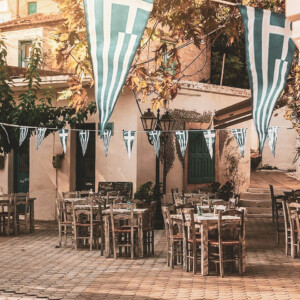
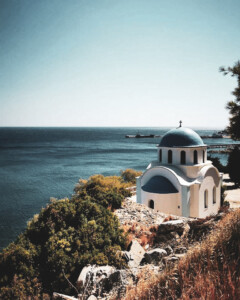 relatively little tourism and there’s a strong sense of solidarity among the residents (via neighborhood help, initiatives). Agriculture plays a major role and “old wisdom” – about horticulture, cattle breeding, herbalism, natural remedies, cooking winemaking, honey harvesting and olive oil production – still presides. The landscapes are still mostly virginal, with wonderful, mainly restored old footpaths and farm paths.”
relatively little tourism and there’s a strong sense of solidarity among the residents (via neighborhood help, initiatives). Agriculture plays a major role and “old wisdom” – about horticulture, cattle breeding, herbalism, natural remedies, cooking winemaking, honey harvesting and olive oil production – still presides. The landscapes are still mostly virginal, with wonderful, mainly restored old footpaths and farm paths.”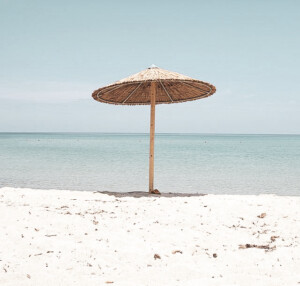 events is to raise money to create local infrastructure like roads, schools, hospitals, renovations in churches and so on.” Interestingly, Juring says, this year there were far fewer tourists on the island from April – August, which offered a breather of sorts to the locals.
events is to raise money to create local infrastructure like roads, schools, hospitals, renovations in churches and so on.” Interestingly, Juring says, this year there were far fewer tourists on the island from April – August, which offered a breather of sorts to the locals.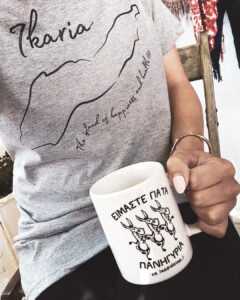 Reiner Juring is the Editor of the
Reiner Juring is the Editor of the